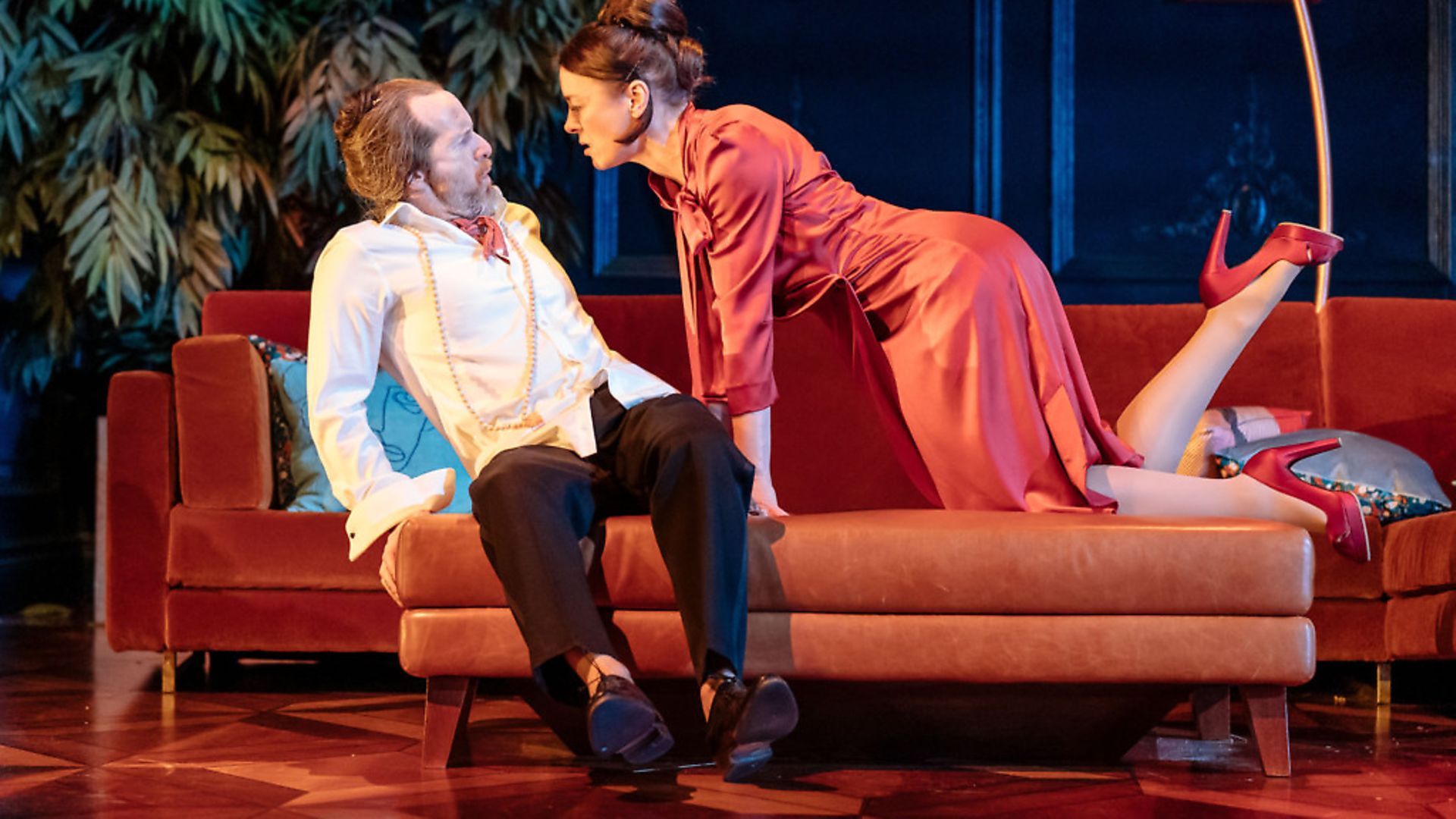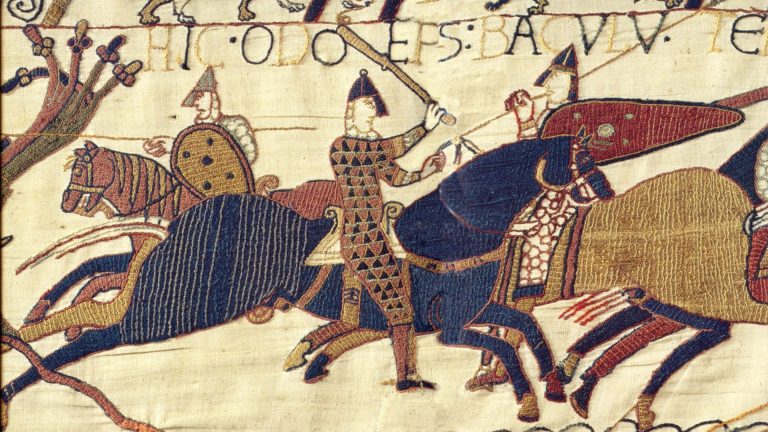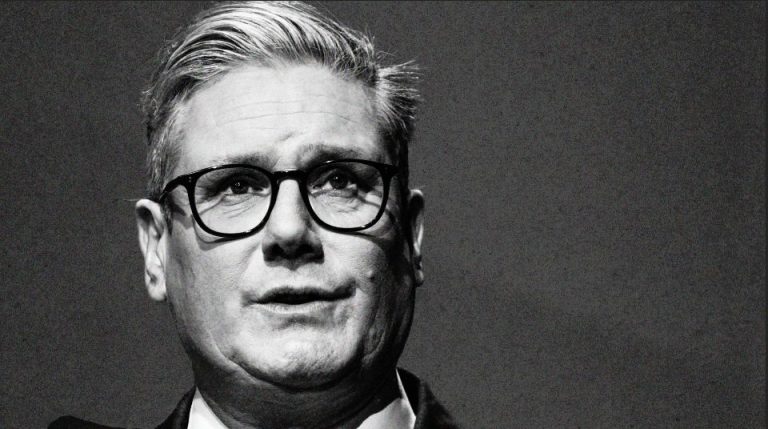
In this week’s stage review, TIM WALKER reviews Tartuffe at the National Theatre.
The National Theatre offers excursions to both heaven and hell at the moment. Turn left when you enter the main building and you are on your way to the former, in a once-in-a-lifetime production of Follies. Turn right and, for just the same price, you are off to the latter with Tartuffe.
The proceedings kick off with a rather dodgy-looking fellow standing among the audience, dispensing daffodils. On the first night, one or two punters accepted them with squeals of delight. Then along came an usherette who tells the man to sit down and suddenly everyone felt a bit awkward about it because it looked highly likely that the man was just a crank.
When the show gets under way it turns out it was in fact Denis O’Hare in the title role, but I couldn’t, for the life of me, see the point of that little opening exercise. Molière’s comedy is 350 years old, which means you would have thought the director Blanche McIntyre and her adapter John Donnelly would have accorded it some respect. Instead, they pull it kicking and screaming into what appears to be present-day London, with the action played out in a garishly-furnished room dominated by a golden Statue of David.
Vague memories of this work as a rather mannered school play, with powdered wigs and beauty spots and a clever critique of religious hypocrisy, were soon dispensed as O’Hare got into his stride playing Tartuffe as a long-haired, new-age guru who has managed to inveigle himself into the household of Kevin Doyle’s wealthy, but all too credulous Orgon.
I tried very hard to like this play, but found it not just unlikeable, but often quite simply repulsive and I will admit – and this is very rare for me – I gave up before the end. I mean what is funny or clever about the sight of Tartuffe in his underpants washing his private parts with the contents of an ice bucket?
The tragedy of it is that there are some great actors in the cast – not least Olivia Williams as Elmire, Orgon’s second wife, and Susan Engel as Pernelle, an elderly lady who lunches – and, honestly, the original story is not so bad that it requires such a brutal re-working.
The National has shown itself capable of doing it justice in the past: the 1967 production, using the Richard Wilbur translation and featuring John Gielgud as Orgon, Robert Stephens as Tartuffe, Jeremy Brett as Valere, Derek Jacobi as the Officer and Joan Plowright as Dorine, was by all accounts absolutely spell-binding.
I said last week that when the National Theatre gets a production right there is nothing to beat it in all of the world. I rather fear when it gets one as wrong as this the opposite is also true. I left feeling as downcast as I had felt elated the time before, but you pays your money and you takes your choice.









